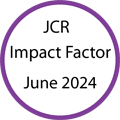Clinical Comparison of Conventional Testicular Sperm Extraction and Microdissection Techniques for Non-Obstructive Azoospermia
Abstract
Background: We compared the efficacy of microdissection testicular sperm extraction (microdissection TESE) and conventional TESE in patients with non-obstructive azoospermia (NOA) and related the positive sperm recovery to certain variables: follicle-stimulating hormone (FSH) and luteinizing hormone (LH) levels, testicular volume and histology.
Methods: Sperm retrieval rates (SRR) in patients with NOA who underwent microdissection TESE (n = 65) or conventional TESE (n = 68) were compared and related to the different variables.
Results: SRR by microdissection TESE (56.9%) was significantly higher than conventional TESE (38.2%). There was a positive relation between the SRR and increased testicular volume or decreased FSH levels. No effect of Testosterone or Prolactin levels on SRR by using either technique was observed. Sperm were recovered from those with hypospermatogenesis in 84% and 92.9% by conventional and microdissection TESE, respectively (P = 0.3). In cases of maturation arrest the SRR was 27.3% and 36.4%, respectively (P = 0.6). In cases of Sertoli-cell-only syndrome (SCOS) the SRR was 6.2% and 26.9%, respectively (P = 0.03). No major operative complications occurred in any patient in either group, and no patient required post-operative hormone replacement to treat hypogonadism.
Conclusions: Microdissection TESE significantly had twice better probability of success of SRR when compared to conventional TESE. No secure pre-operative prognostic elements of sperm recovery exist for NOA patients. Microdissection TESE appears to be recommendable in cases of atrophied testicles, high FSH concentration, or when SCOS with high FSH concentration can be predicted.
doi:10.4021/jocmr542w











